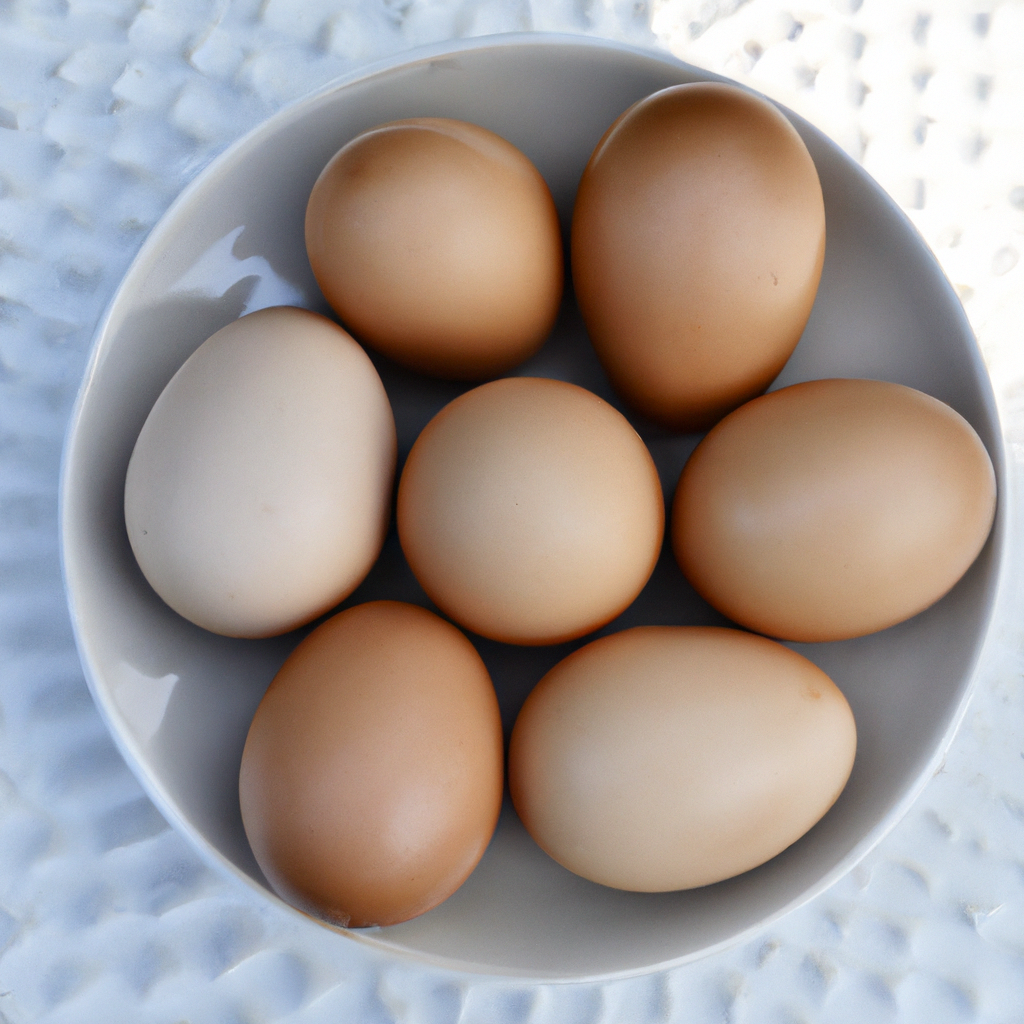What are the Health Benefits of Eating Eggs?
If you don’t already know, eggs are a great source of nutrition and provide a variety of health benefits. They are high in protein, contain essential vitamins and minerals, and can help reduce the risk of certain diseases. Eating eggs regularly as part of a varied and nutritious diet can help improve your overall health and well-being.
In this blog, you will learn of the health benefits of eating eggs and why they should be part of your diet.
Firstly why were Eggs considered bad for us?
For decades, eggs have been the subject of controversy and debate. In the 1970s and 80s, they were linked to high cholesterol levels and salmonella poisoning, leading to a wave of negative press and public advice to avoid eating eggs. However, more recent research has revealed that eggs are actually a healthful food with numerous benefits for our bodies.
In 1999, a groundbreaking study published in the Journal of the American Medical Association (JAMA) sought to challenge the long-held belief that egg consumption was linked to an increased risk of cardiovascular disease. The results of this study found no such link, leading to a paradigm shift in how eggs were viewed by medical professionals and the general public alike. This shift in attitude towards egg consumption has continued over two decades later, with many health organizations recommending moderate egg consumption as part of a balanced diet.
In 2020 an observational study has stirred the pot again and has not been so favourable regarding eggs and heart disease! Many experts are sceptical due to the methods of data collection so it will be interesting to see what researchers come up with next!

For now, Eggs are definitely on the 121 Dietitian yum list, read on to find out why..
Egg Nutrition
Eggs are packed with essential vitamins and minerals including calcium, iron, potassium, zinc, manganese, vitamin E, folate and many more, as well as being a great source of protein. They contain all nine essential amino acids, making them a complete protein source. Additionally, eggs are loaded with choline, an important nutrient that can help support many bodily functions including cardiovascular health and the yolks are one of the best sources of lutein, a pigment that has been linked to better eyesight and lower risk of eye disease. With their powerhouse of nutrition, eggs make a great addition to any healthy diet. For the protein and nutrients they provide, they are an inexpensive food group.
If you are already a Boiled egg eater you will be delighted to know the following:
Eating just one large boiled egg can give you 8% of your daily value (DV) of vitamin A, as well as 6% DV of folate, 14% DV of pantothenic acid (vitamin B5), 23% DV of vitamin B12, 20% DV of riboflavin (vitamin B2), 7% DV of phosphorus and 28% DV selenium. Eggs are an excellent source of several essential vitamins and minerals. 78 calories, 6 g of protein and 5 g of fat can be found in each egg, as well as trace nutrients which are important for overall health. Nutrients found in eggs include vitamin D, vitamin E, vitamin B6, calcium, zinc.
How to Choose the Right Type of Egg for Your Diet
Choosing the right type of egg for your diet can be a tricky task. With so many options available, it can be difficult to know which type of egg is best for you. Organic eggs, regular eggs, free-range eggs, cage-free eggs, pasture-raised eggs and omega-3 enriched eggs are some of the main types of eggs available in the market today. Each type of egg has its own unique benefits and drawbacks that should be taken into consideration when making a decision about which one to buy.
Organic eggs we know are a healthier and more sustainable alternative to regular eggs. Eggs that come from hens are fed organic feed and are allowed to roam freely in their natural environment. These hens have access to fresh air, sunlight, and plenty of space for foraging. As a result, organic eggs contain higher levels of essential vitamins and minerals than regular eggs. Additionally, organic egg production is more humane and does not involve the use of antibiotics or hormones. For those looking for a healthier option that is also better for the environment, organic eggs are a good choice if you are able to spend the money as this can be prohibitive if consuming large amounts.
Omega-3 enriched eggs are a type of egg that has been enhanced with additional omega-3 fatty acids. These eggs are produced by feeding chickens a diet that is rich in omega-3 fatty acids, such as flaxseed, fish oil, and algae. The resulting eggs have higher levels of omega-3 fatty acids than regular eggs and can be used as an alternative to traditional sources of dietary omega-3s. Omega-3 enriched eggs have been shown to have health benefits such as improved heart health, reduced inflammation, and improved brain function. They also provide an excellent source of protein and essential vitamins and minerals so a win-win.
Caged eggs, also known as battery eggs, are eggs laid by hens that are kept in a cage. The cages used for caged eggs are typically small and restrict the hens’ movement. This type of egg production is controversial due to animal welfare concerns. Caged eggs have been banned in some countries, while others have implemented regulations to ensure that the hens receive adequate space and enrichment activities. It is good to know that more is being done to stop hen cruelty and to assist this further – selecting alternatives where possible is a good start.

How to Incorporate Eggs into Your Diet
Eggs are not only a super choice nutritional but so versatile and can be cooked in many different ways to create delicious dishes that are both nutritious and satisfying. From omelettes to frittatas, quiches to salads, and the infamous cloud bread! the possibilities for using eggs in your cooking are endless.
There are thousands of recipes out there here is the novel cloud bread made healthier!
How to make cloud bread
To make cloud bread, you need to start by whipping 3 large egg whites in a clean & grease-free bowl. Whip the egg whites on medium-low until they become frothy and light in colour.
Start by stirring in 2 and a half tablespoons of sugar alternatives, such as stevia or erythritol. Add the alternative sweetener gradually and blend on a high setting until it is completely dissolved and the egg whites begin to form a foam.
Add 1 tbsp of cornstarch and sift it through to ensure there are no lumpy bits. Then, whip the egg whites on a high setting until it forms a glossy, thick meringue that stands up when peaks are formed.
The egg whites are done when you take the beater out of the bowl and notice that they form a peak which is smooth & creamy, like shaving cream. Additionally, the whites should stay in place when you tilt the bowl. You need to be careful to not over-whip them!
With a rubber spatula, scoop out the meringue and form it into a cloud on a parchment-paper-lined baking sheet to give it its desired shape.
Bake in a low oven 150-160c until golden and cooked through.
Enjoy!

What to do next about your Diet or anything else..
If you are unsure of how to increase or decrease your weight, change your eating habits or need help optimising the foods you eat and are not sure what programme to select please do contact us. We would love to help you or your family and friends with any nutrition-related queries big or small.
If you want to book your programme TODAY we would love to help you.
You can book a 121 Dietitian Programme today by clicking on the link below
If you have enjoyed this blog we would love you to share this with your family and friends on your social media channels. Do visit our YouTube Channel for more on keeping your health optimal.
If you are interested in how I overcame my Thyroid Autoimmune Condition do check out the About section below
Before you go please check out our 121 Dietitian Shop created specifically for optimising your health.
Gillian x
Links included in this description might be Amazon affiliate links. If you purchase a product or service with the links that I provide I may receive a small commission.
